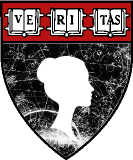Women in Physics hosted our second annual Building Inclusive Community Workshop on October 30th, 2020. This workshop is meant for graduate students, led by graduate students. The core concepts were:
-
Various aspects of a person's identity affect that individual's experience in a space.
-
How a person's identities combine and intersect is unique to them.
-
Environments can interact with a person's identities in ways which make them feel vulnerable.
-
Privilege should be leveraged to protect those with less power.
And the goals of this year’s workshop were:
-
Start conversations about how to create an inclusive, supportive, and productive peer community.
-
Equip community members to think about and discuss nuanced issues and factor (their own and others’) identities into a conversation.
-
Provide well-defined action plans to eliminate and confront inappropriate or threatening behavior in the workplace.
The format this year was similar to the previous year, with a few introductory exercises led by the WiP co-chairs and discussed in Zoom breakout rooms. It was followed by a brief presentation on the HGSU-UAW grievance process and a longer presentation (from Rachel DiBella) on Title IX reporting and bystander training. The workshop finished with facilitated case study discussions in Zoom breakout rooms.
This year the Harvard Graduate School of Education’s Equity and Inclusion Fellows helped us by creating a dedicated training for our facilitators. This training helped facilitators not only understand the material in the workshop, but also have strategies to move conversation along, make sure everyone contributes, and keep conversations on track. The Fellows also participated as facilitators themselves at the workshop, which was very helpful since the workshop had an incredible turn out of ~50 participants. The Fellows also were amazing to work with in that they gave insightful feedback about the workshop and worked with us to see that the goal of the workshop was clear and effective.
Post-workshop feedback was positive, with all survey participants reporting an increased confidence in their ability to intervene in difficult situations. Survey participants expressed satisfaction with the format of the workshop and suggested future presentations focus even more on bystander intervention techniques.
Women in Physics would like to thank the HGSE Equity & Inclusion Fellows, Hannah Liu, Sara Amjad, and Vishal Jain; Assistant Director of the Title IX Education Programs, Rachel DiBella; and the Physics and Applied Physics staff who offered support and advice throughout the planning process.
